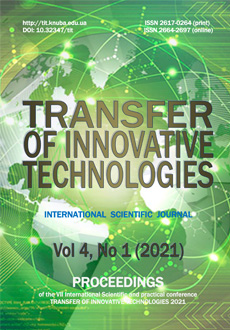Knowledge-based construction technology development management
DOI:
https://doi.org/10.32347/tit2141.0302Keywords:
BIM technologies, knowledge, construction management, models and methodsAbstract
With the development of construction technologies, changing and modernizing customer requirements, projects become more time-consuming and, accordingly, all design documentation becomes more complicated, while its volume is steadily growing. Designers are forced to process more and more information that precedes and accompanies the process of working on the project. The flow of information 79 continues to come after the commissioning of the facility, as the erected building interacts closely with the environment and other facilities, and we should not forget about the life support of the building, management of internal processes. Accordingly, the probability of errors increases exponentially, and with the increase in the cost of the project increases the cost of errors. In response to the above problems was the concept of information modeling of buildings. Information modeling as an approach to building design involves, above all, the collection, storage and comprehensive processing in the process of designing all the architectural, technological, economic and other information about the building with all its interconnections. languages and dependencies, when the building and everything related to it are considered as a single object.
References
Крог Георг, Кене Мария (1999). Трансфер знаний на предприятии: основные фазы и воздействующие факторы. Проблемы те-ории и практики управления, 4, 74-78.
Eveland W.P.J., Marton K., and Seo M. (2004) Moving beyond “just the facts”: the influence of online news and the content and structure of public affairs knowledge. Communication Research, 31, 82-108.
Leach D.J., Wall T.D., & Jackson P.R. (2003) The effect of empowerment on job knowledge: An empirical test involving operators of complex technology. Journal of Occupational & Organizational Psychology, 76, 27-52.
Polanyi M., Prosch H. (1975) Meaning. University of Chicago Press.
Orlikowski W.J. (2002) Knowing in practice: enacting a collective capability in distributed organizing. Organization Science, 13, 249-273.
McInemey C. (2002) Knowledge management and the dynamic nature of knowledge. Journal of the American Society for Information Science and Technology, 53(12), 1009-1018.
Мильнер Б.3. (2005) Теория организаций: учебник. М.: ИНФРА-М, 720, 35.
Cross R. (1998) Managing for knowledge: managing for growth. Knowledge Management, 1(3), 9-13.
Downloads
Published
How to Cite
Issue
Section
License

This work is licensed under a Creative Commons Attribution-NonCommercial-NoDerivatives 4.0 International License.
Our journal abides by the CREATIVE COMMONS copyright rights and permissions for open access journals.
Authors, who are published in this journal, agree to the following conditions:
1. The authors reserve the right to authorship of the work and pass the first publication right of this work to the journal under the terms of a Creative Commons Attribution License, which allows others to freely distribute the published research with the obligatory reference to the authors of the original work and the first publication of the work in this journal.
2. The authors have the right to conclude separate supplement agreements that relate to non-exclusive work distribution in the form in which it has been published by the journal (for example, to upload the work to the online storage of the journal or publish it as part of a monograph), provided that the reference to the first publication of the work in this journal is included.




